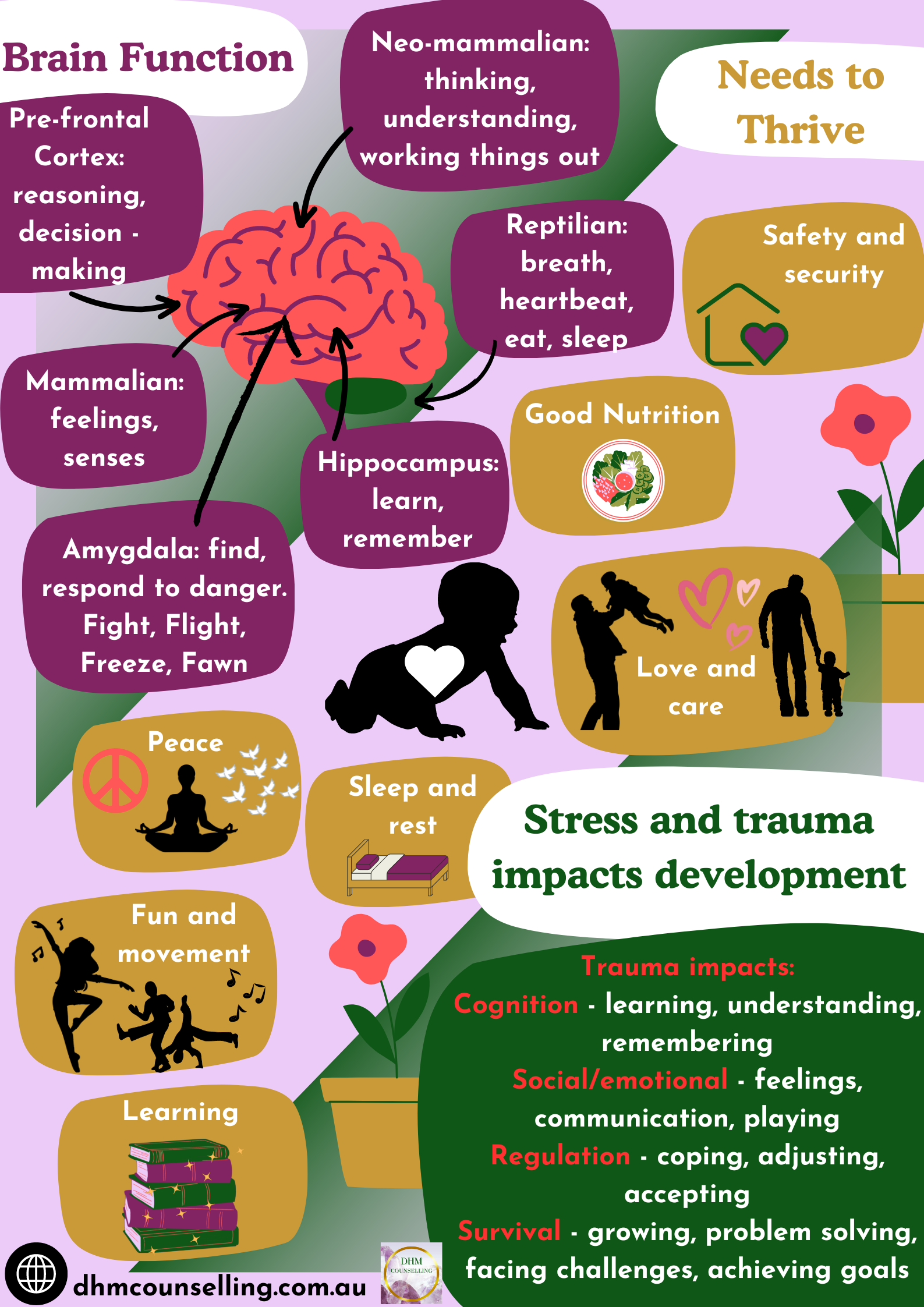Trauma Informed Therapy
Trauma is not merely an inconvenience that can be overcome swiftly.
Trauma changes your brain chemistry. It is often intergenerational and takes years (and yes, sometimes generations) to unpack and heal. Most people avoid it and pass it on. Some do some of the work and pass on less. Others reconfigure themselves completely, shifting their own destiny and that of others with them. People who heal their own trauma change the world. They heal others, they dismantle and recreate systems that are oppressive and harmful, and forge new ways of seeing and being in the world. Healing trauma is a privilege some simply do not have the opportunity to attempt. The chance to address and heal trauma should be accessible and available easily to everyone.
When you unpack and address your trauma, you not only rebuild yourself, you impact generations to come. That is not limited to your own offspring if you have children. It impacts others through any legacy you leave behind, through any relationships you have throughout your life.
Addressing only one aspect of your personality hoping that it will fix everything does not always work. For example, if you lack confidence, you can certainly improve that, but you need to go deeper into your psyche to get to the source, not just put a plaster on one symptom.
Holistic trauma informed practice means you look at the bigger picture, in relation to both client narrative and resources accessed. It involves looking deep into the self, but also out to the people and world that you inhabit. It is in the understanding of both the micro and the macro environments that healing can truly occur.
It takes courage, truth and discomfort to get to the sources of trauma which are largely related to attachment and development more broadly, but are also infinitely unique and individually complex. That work may begin small, with an immediate issue or event, but it gains momentum, creating a flow-on effect to addressing other areas of the self that require transformation. You start off working on confidence, and end up thinking about your fears, heartbreak, work ethic and organisational skills, for example.
The impact of trauma on the developing brain
Brain development begins in utero and occurs intergenerationally via parent brain development.
When needs are met, humans thrive. When stress and trauma occur, brain development and function are impacted causing difficulties and dysfunction.
Trauma informed therapy works towards reversing, reconfiguring and reframing this impact to achieve transformation and healing.
When trauma is unpacked, it impacts every aspect of your being. This is especially the case when trauma is caused by a recent tragic adverse event, like being the victim of a crime, for example. In this case, trauma is much easier to identify so you can work on its dissolution. Sometimes, time is needed to process the impact of immediate trauma, distance providing a clearer perspective on the relationship between the cause and the effect.
On the other hand, when trauma is caused by the accumulation of dysfunction, stress, neglect or abuse, over a sustained period of time, it becomes harder to pin point the source and your story requires closer attention. The earlier trauma, stress and insecurity occurs, the more depth and practice is required to understand and adjust beliefs, patterns and behaviours to achieve goals and wellbeing. It is also necessary to understand the mechanisms of external structural conditioning beyond individual control that contribute to intergenerational trauma. Through this lens it is clear that the personal is still political. Therapy is a political act. Healing the self is political. Healing selves, heals communities.
Navigating the source, triggers, impact of, and remedy for trauma safely occurs best when contained in a professional therapeutic space, with evidence-based theoretical foundations and methods. This includes the ability, permission and encouragement to criticise, influence and change those systems to accommodate a diversity of lived experiences.
Of course, ultimately, a client-led, autonomous approach works best, giving individuals agency over their own decision-making abilities and strengths. However with the right guidance and support, you are more likely to get a quality and long-term result than if you continue in survival mode, skirting around the issues alone. Making informed choices through a robust, trustful therapeutic alliance is protective, and facilitates the safe exploration of ideas and options. Trauma informed therapy is both an individual pursuit and a collective one, as nobody exists in a vacuum. When you heal the self, you heal your kin and community.
Trauma informed therapy is life changing and may be the beginning of a profound shift in how you live your life, how you feel, the decisions you make, and the relationships you have. You may not consider your development as having been traumatic - there is still a lot of shame and stigma associated with trauma identification because many people are afraid of resorting to blame. But that is not what therapy is about. Identification of trauma is a liberation not a conflict when executed safely with boundaries, humanity and professional integrity.
If there is something in your life that you would like to unpack, Counselling is a good place to start. At DHM, you will experience a nurturing process, with client-led pace, methods, and tools to ensure autonomy, independence and safety. Together we will discover what you need, to develop skills to express emotions, explore thoughts, and if necessary, transform behaviour. We will investigate the subconscious and unconscious aspects of yourself. You will learn things unique to you, your lived experience and your own being.
If your needs are beyond my scope of practice, on-referral and connection to other networks, professional services and healthcare providers that could support you better may be necessary. It really does take a village, but it starts with one healthy and robust therapeutic relationship.
Book a FREE 30 minute session today. I look forward to meeting you.

